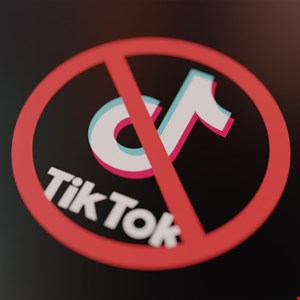A federal appeals court has upheld a law that could see TikTok banned across the US unless its Chinese parent company, ByteDance, divests its ownership.
The decision was issued by a three-judge panel from the US Court of Appeals for the District of Columbia Circuit on Friday, marking a significant setback for the video-sharing platform as it battles to remain operational in the United States.
The court ruled that the law,signed by President Joe Biden in April, does not violate the US Constitution. Senior Judge Douglas Ginsburg, writing for the panel, stated the legislation is “narrowly tailored to protect national security” by countering potential threats posed by TikTok’s ties to China.
TikTok and ByteDance had argued that the law infringes on First and Fifth Amendment rights, describing it as an overreach based on “speculative and flawed” concerns. However, the court maintained that the statute was not an attempt to suppress free speech but a measure tomitigate risks from a foreign adversary.
“The US Court of Appeals ruling on TikTok underscores key concerns in mobile app security, API vulnerabilities, and the dominance of Apple and Google in app ecosystems,” explained Approov CEO, Ted Miracco.
“While the ban targets national security risks tied to foreign ownership, it also highlights systemic issues in app distribution and the lack of federal data privacy laws. This regulatory gap allows platform owners to enforce opaque policies that often prioritize profit over user protection, enabling excessive data harvesting and weak penalties for violations. A robust, enforceable policy is crucial, especially to protect minors from app-based surveillance and manipulative algorithms.”
Regardless, TikTok said they plan to challenge the decision in the Supreme Court. Company spokesperson Michael Hughes recently expressed optimism that the court would reverse the law, arguing that the ban is founded on incorrect information and would suppress the voices of over 170 million Americans.
Concerns Over National Security
The US government has long raised concerns about TikTok, citing risks ofuser data being accessed by the Chinese government and fears of content manipulation. While lacking direct evidence, these claims are rooted in Beijing’s national security laws, which require companies to cooperate with intelligence operations.
In response, TikTok has invested over $2 billion in a data security initiativecalled Project Texas to distance itself from ByteDance. However, US officials have dismissed the plan as insufficient to address the broader concerns.
What Next for TikTok in the US?
Under the law, TikTok has until January 19 to finalize a divestiture or face removal from app stores and web-hosting platforms. A one-time 90-day extension is possible if a sale is underway.
Meanwhile, political dynamics could influence the outcome. President-elect Donald Trump, once a proponent of banning TikTok, has shifted his stance and expressed interest in preserving the app under new ownership.
The ruling also opens the door for further legal battles, with groups like the Knight First Amendment Institutecriticizing the decision as a dangerous precedent for restricting access to international media. The next steps could involve additional court challenges or legislative negotiations to determine TikTok’s fate in the US.
Image credit: Temitiman / Shutterstock.com
